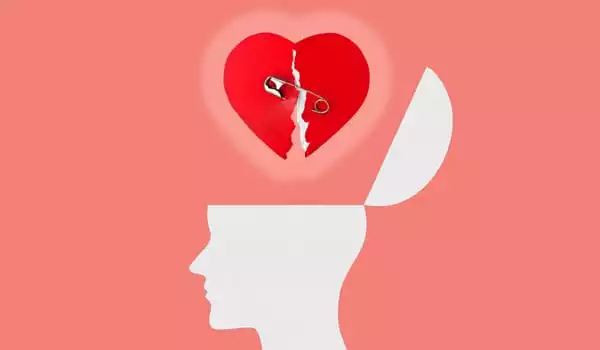Breakups are more traumatic for men because they are more ’emotionally invested’ in their relationships than women, according to a new study. According to a new study by top psychologists, the age-old stereotype of men being “less emotionally committed in relationships” than women is not true.
According to scientists, the stereotype of men being less emotionally committed in relationships than women may not be realistic. According to a new research of online relationship assistance, males endure more emotional distress than women when their relationship goes bad.
An international team of psychologists lead by Lancaster University researchers undertook the first-ever “big data” investigation of relationship issues. The study began as an attempt to map the most prevalent relationship issues encountered by people outside of clinical and counselling settings.
“The majority of what we know about relationship problems comes from studies of people in couples therapy, which involves a pretty specific population of people — people who have the time, money, and motivation to work on their relationship problems,” said Charlotte Entwistle, the study’s primary author. “We wanted to know not only what relationship difficulties are most widespread among the general public, but also who encounters certain problems most frequently.”
As we were conducting the study, we recognized that this was an excellent chance to put a lot of conventional beliefs about gender disparities in relationships to the test. For example, are males actually less emotionally committed in relationships than women, or are men merely ostracized for communicating their feelings?
Dr. Ryan Boyd
The researchers studied the demographic and psychological aspects of approximately 184,000 people who posted their relationship concerns to an anonymous internet forum using natural language processing technologies. The researchers were then able to create a “map” of the most common relationship difficulties by statistically determining the most common patterns that emerged throughout each post.
According to the findings, communication problems were the most frequently stated problem, with nearly one in every five respondents citing difficulty addressing problems and one in every eight mentioning trust issues in their relationships. Previously unanticipated trends emerged from the data as well, including significant gender differences in which themes were most frequently employed.
“As we were conducting the study, we recognized that this was an excellent chance to put a lot of conventional beliefs about gender disparities in relationships to the test,” said Dr. Ryan Boyd, the project’s lead researcher. “For example, are males actually less emotionally committed in relationships than women, or are men merely ostracized for communicating their feelings?”
Analyses found that the most common topic stated by people discussing their relationship troubles was the emotional anguish caused by the problems, rather than the problems themselves. The most common subject was “heartache,” which was expressed through terms such as regret, breakup, tear, and heartbroken.

The team’s research revealed that men discuss heartbreak substantially more than women, contrary to their assumptions. These findings imply that the notion of men being less emotionally committed in relationships than women may be incorrect.
“Notably, the fact that the grief theme was more typically addressed by males underlines how men are at least as emotionally affected by relationship problems as women,” stated Charlottle Entwistle. Furthermore, the study discovered that men were more likely than women to seek relationship counseling online.
Dr. Ryan Boyd observed that “Women have traditionally been more likely than males to recognize marital difficulties, explore counseling, and seek therapy. When the conventional social stigmas associated with males seeking help and disclosing their emotions are removed, they appear to be just as invested in working through hard patches in their relationships as women.”
The findings of the research have ramifications for both the general public and clinical settings. According to the researchers, establishing a more realistic image of relationship problems allows us to better understand when and why things go wrong in our relationships, potentially assisting couples in avoiding the most typical obstacles to romantic success. The authors of the study also believe that the findings may help to de-stigmatize help-seeking by demonstrating how prevalent many relationship difficulties are and that men are just as likely as women to seek help in the first place.
According to the experts, this work also leads to key potential directions for additional investigation. “One of the most important things we’re finding here is that we’re able to construct an amazingly realistic picture of relationship problems that ordinary people confront based only on what people say online,” Dr. Boyd stated. “This offers us genuine hope that we may use help-seeking behavior to better understand all types of social and psychological concerns in ways that standard research approaches just cannot do.”
















